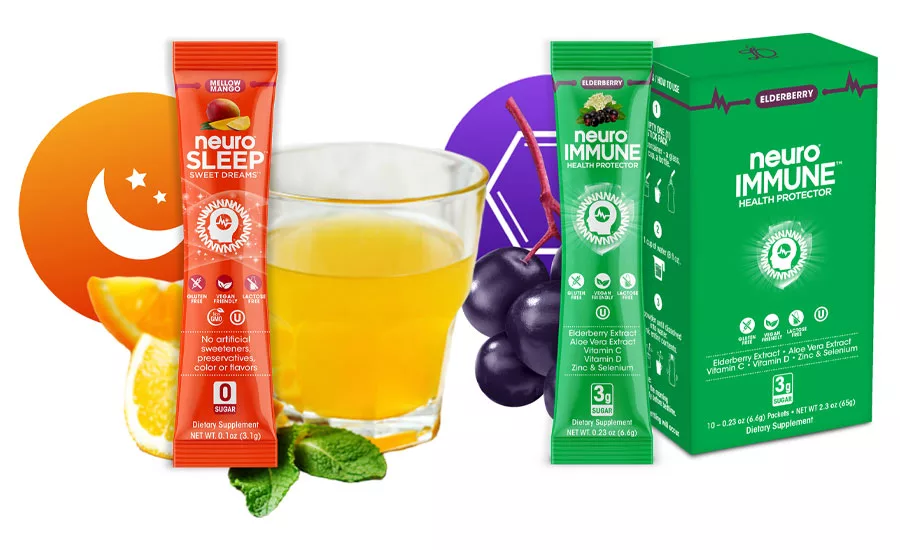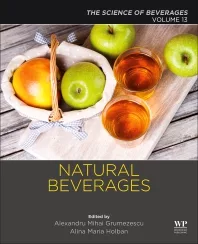R&D Feature
Pandemic heightens importance of immune health ingredients
Immunity-boosting beverages show multi-ingredient approach trend

The proverb “an apple a day keeps the doctor away” is no stranger to doctor’s offices and classrooms throughout the country. Although current global health conditions have placed a greater focus on immunity-boosting food and beverages, experts note that many consumers already were taking a greater interest in their health and wellness.
“Prior to COVID-19, the cold and flu season is the obvious driver of immune health market success — back to school has always been the ‘make or break’ time for immune focused food, beverage and supplements,” says Michael Bush, chief executive officer for Prenexus Health, Gilbert, Ariz. “Polls show moms are the key buyers of immune products during this time. Healthy kids allow for parents to work without the need to call off due to sick kids.”
Ryan Wories, director of marketing for Momence, Ill.-based FutureCeuticals, notes that consumers at any stage in life have been showing an interest in immune-boosting products.
“Traditional medicinal botanicals and herbs were amongst the most sought-after immunity ingredients, and consumers connected to their vibrant stories,” he says. “Research had also began linking immunity and gut health, which prompted new product innovation and consumer demand.
“As the immunity supplement market continues to grow significantly in 2020, these trends are still impacting consumers’ purchasing decisions,” Wories continues. “For example, the renewed focus on health and well-being we are seeing in the post-COVID world has led more consumers to explore products made from natural ingredients, especially with traditional medicinal uses. Consumers have also leaned into the relationship between gut health, antioxidants and immunity.”
John Quilter, vice president and general manager for Kerry, Beloit, Wis., also pinpoints the growth that immune health has taken this year.
“2020 has seen a major acceleration of consumer interest in the role of nutrition in immunity, with a 670 percent increase in Google searches for ‘food’ and ‘immune system’ between February and March,” he says, citing Google Trends data. “Reflecting that, the immune vitamin dietary supplement market has seen substantial growth, with U.S. sales increasing by 25 percent in 2020,” he adds, citing Nutrition Business Journal’s April webinar titled “Supplements in the time of COVID-19.”
FutureCeuticals’s Wories notes that the interest in immune health likely will remain prominent for the short-term, but still could have lasting effects on consumer purchase patterns.
“The pandemic has amplified consumer interest in immune health and has caused massive, unexpected growth in the industry,” he says. “Consumers are looking for increased peace of mind through preventative wellness products, and we will certainly continue to experience the short-term side effects for a while. Even after consumer fears begin to wane, we still expect to see a shift towards holistic wellness [as] a long-term change — with immune health driving innovation.”
Fortification with purpose
Although the immune health market is not new, formulators are taking another approach in how to deliver food and beverages with this healthy lifestyle attribute.
“Customers continue to fortify beverages, but now we are starting to see multi-ingredient approaches to support immune health,” Prenexus Health’s Bush says.
Among the ingredients that Bush touts as having shown to provide various levels of immune support are probiotics, prebiotics, vitamin C, zinc, echinacea and elderberry.
For its ingredient portfolio, FutureCeuticals relies on clinically researched superfoods that support a healthy immune system, Wories says.
“Our featured immune-supporting botanicals include acerola, orange, carrot, sweet potato, turmeric, quercetin, acai, maqui berry, kale and spinach,” he says. “These ingredients are available as single powders or custom blends. Our branded antioxidant solutions — Spectra and PhytoServ — can also support a healthy immune system.”
Another ingredient that formulators are turning to for immune support are beta glucans.
“Consumer demand for safe, natural and clinically proven immune health products is fueling growing interest in the benefits of beta glucans, not all provide clinical data that shows their ability to provide immune health benefits,” Kerry’s Quilter explains. “One example of a beta glucan that does offer to help with immune support is Wellmune, a proprietary baker’s yeast beta 1,3/1,6 glucan with a long history of research demonstrating efficacy.”
He adds that beverage-makers currently are using Wellmune in a variety of categories including ready-to-drink beverages, powdered sachets, dairy-based drinks, juices, smoothies, enhanced waters, and sports and energy drinks.
Quilter notes immune support spans across varying consumer demographics, but one its seeing increasing interest has been sports nutrition beverages.
“This is because athletes at all levels can face harsh environmental factors (increased exposure to crowds or travel exhaustion for example) as well as physical and psychological stress,” he says. “These factors can negatively impact the immune system and overall physical health. This can lead to missed training days or critical workouts and impact performance and wellness goals. Since the immune system slows and weakens with age, older adults are another important demographic group, and that market is only likely to get bigger in the future.”
Looking for a reprint of this article?
From high-res PDFs to custom plaques, order your copy today!








